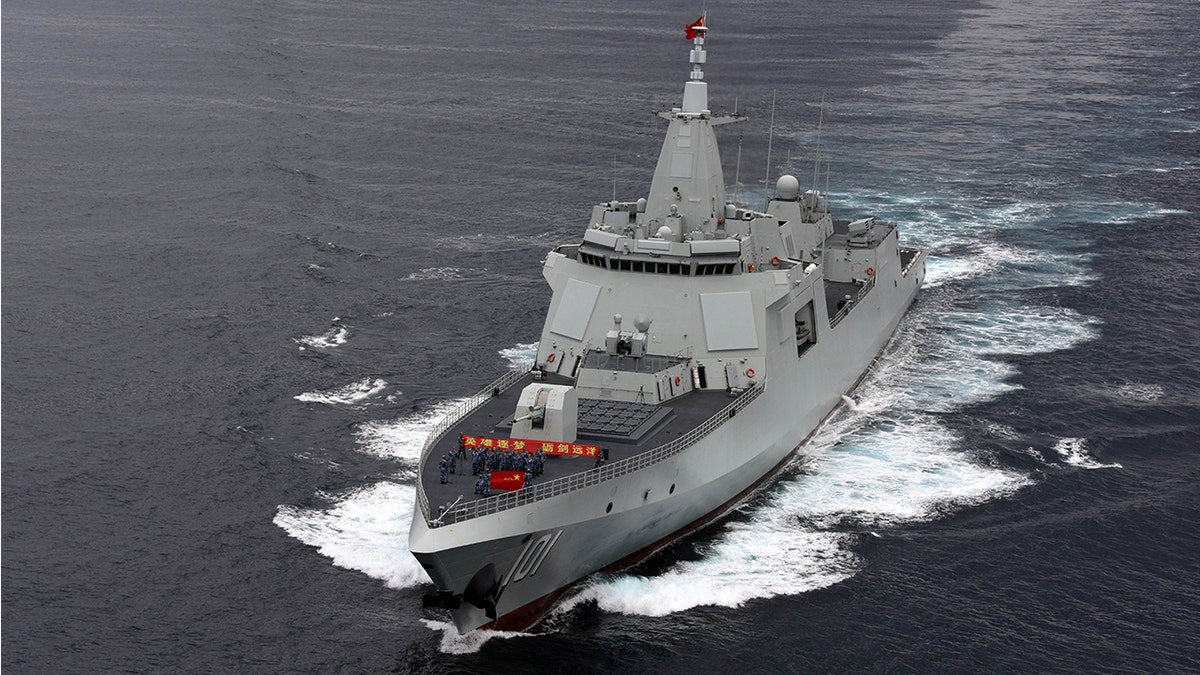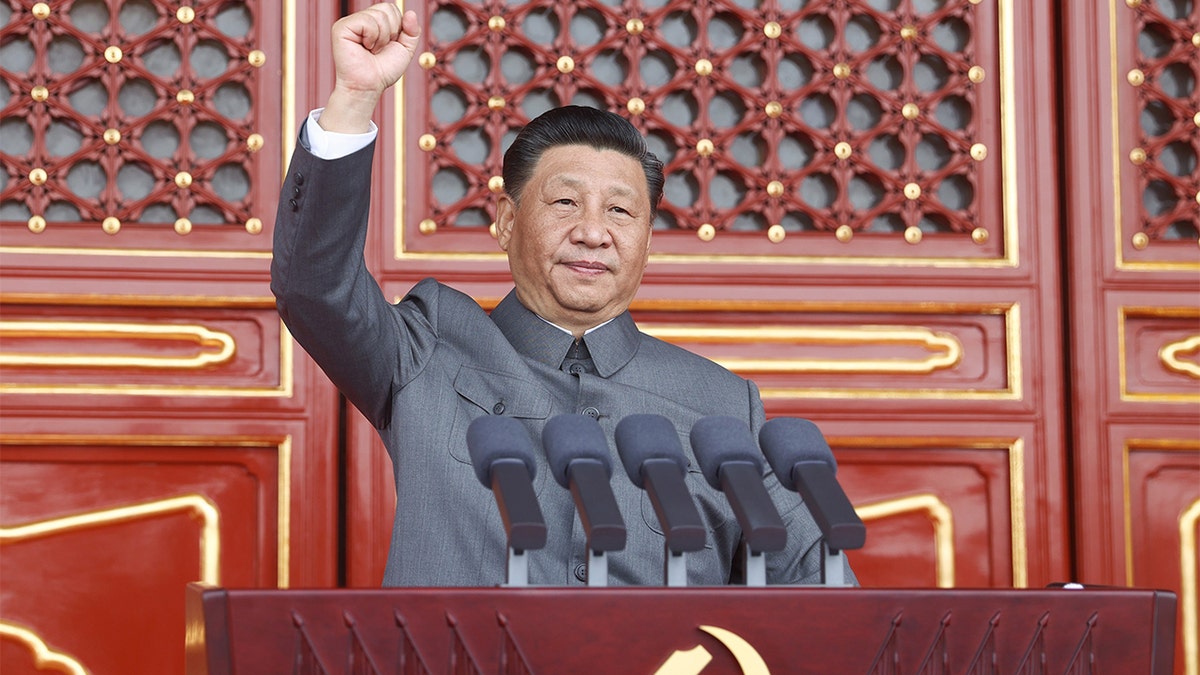Gen. Keane on Chinese military efforts: 'You don't see a replica to this kind of standard'
Retired Four Star General Jack Keane on satellite images showing Chinese mockups of U.S. Warships and tensions escalate with China.
China is likely not preparing for any imminent military action against Taiwan despite recent revelations that the country built replica U.S. warships for ballistic missile testing, experts tell Fox News.
The U.S. Naval Institute (USNI News) obtained photos of the replica vessels – including an aircraft carrier – in the Taklamakan Desert. The mock-ups, which were "substantially complete by early October" 2021, appear to signal China’s intent to develop technology and methods to counter these U.S. assets.
The revelation has stirred up increased concern among U.S. officials in Congress and the Pentagon about Chinese aggression.

China's type 055 guided-missile destroyer Nanchang sails during the naval exercise Joint Sea-2021 on Oct. 19, 2021 in the Western part of the Pacific Ocean. (Photo by Sun Zifa/China News Service via Getty Images) (Sun Zifa/China News Service via Getty Images)
"We’re witnessing one of the largest shifts in global geostrategic power the world has witnessed," Joint Chiefs of Staff Chairman Gen. Mark Milley said last week. "They are clearly challenging us regionally and their aspiration is to challenge the United States globally."
Milley called the test "very concerning" and "very close" to being a "Sputnik moment," referring to the Soviet Union's 1957 launch of the world’s first space satellite
In China, the government suggested citizens stock up on necessities for an emergency, causing scattered concern that Beijing might order action against Taiwan. However, some experts say that any "hot" conflict between the two nations is not imminent.
"I do not believe there is an imminent threat of an amphibious invasion of Taiwan by the PRC," President of the Institute of World Politics and former Deputy Under Secretary of Defense for Policy James Anderson told Fox News. "These developments do point to the PRC’s seriousness about developing a wide range of capabilities that could be used in a Taiwan scenario or other scenarios."

Xi Jinping, general secretary of the Communist Party of China CPC Central Committee, Chinese president and chairman of the Central Military Commission, delivers an important speech at a ceremony marking the 100th anniversary of the founding of the CPC in Beijing, capital of China, July 1, 2021. (Ju Peng/Xinhua via Getty Images)
China would signal its intent to take action against Taiwan by first deploying a number of "unconventional pressures" and "menacing activities" including cyberattacks, troop build-ups and ship realignment in the region – not to mention a ramp-up of diplomatic posturing, Anderson explained. "There would be a fair number of indicators," he said, not just a "bolt from the blue."
However, the size of the Chinese navy and its growing sophistication is cause for concern – just not cause for immediate action by the U.S. military. The military does need to adjust it tactics and weapons developments to account for the revelations from China, but those are long-term actions.
Pentagon, Congress increasingly worried about the rise of Chinese military
The U.S. already maintains a presence in the region, including a recently-revealed group of Special Forces operators who have been training the Taiwanese military.
While a "hot" conflict is not likely to happen imminently, China’s activity makes it an increasing certainty that action will happen. How the U.S. responds to China’s eventual attack will depend on the president at the time, according to Isaac Stone Fish, CEO and founder of Strategy Risks as well as the author of a monthly column on China risk for Barron's.

Secretary of State Antony Blinken speaks during a meeting of the United Nations Security Council, Thursday, Sept. 23, 2021, during the 76th Session of the U.N. General Assembly in New York. (AP Photo/John Minchillo, Pool)
"The bigger question on whether the U.S. and China go to war over Taiwan is less about what Beijing does and more about whether Biden or his successors want to deploy military means to counter the invasion when it happens," Stone Fish told Fox News.
Biden and Secretary of State Antony Blinken over the past two weeks reiterated that the U.S. will support and defend Taiwan against any Chinese military action, saying "There is no change to our policy."
China's wealthy seek new ways to move money, avoid Xi Jinping's redistribution policy
The biggest unknown, Stone Fish argues, is the elite power politics in China: Without knowing the stresses President Xi Jinping faces within his own party, the U.S. cannot know whether he may feel the need to act sooner or later.
China’s military remains largely untested, which means all conflict remains theoretical at best, and China may still eventually convince Taiwan to accept a diplomatic situation and avoid any conflict with the U.S.
However, the U.S. can instead prepare for an eventual conflict by laying the groundwork now by preparing American citizens for that reality.
CLICK HERE TO GET THE FOX NEWS APP
"The U.S. government needs to do a better job selling this to American people, and the question of how do we communicate to the American people that China and the CCP may be or is the enemy we need to be fighting while protecting Chinese people and Chinese Americans," Stone Fish said. "That way if we do go to war with China over Taiwan, we avoid the atrocities we faced domestically in World War II with the Japanese population."










































